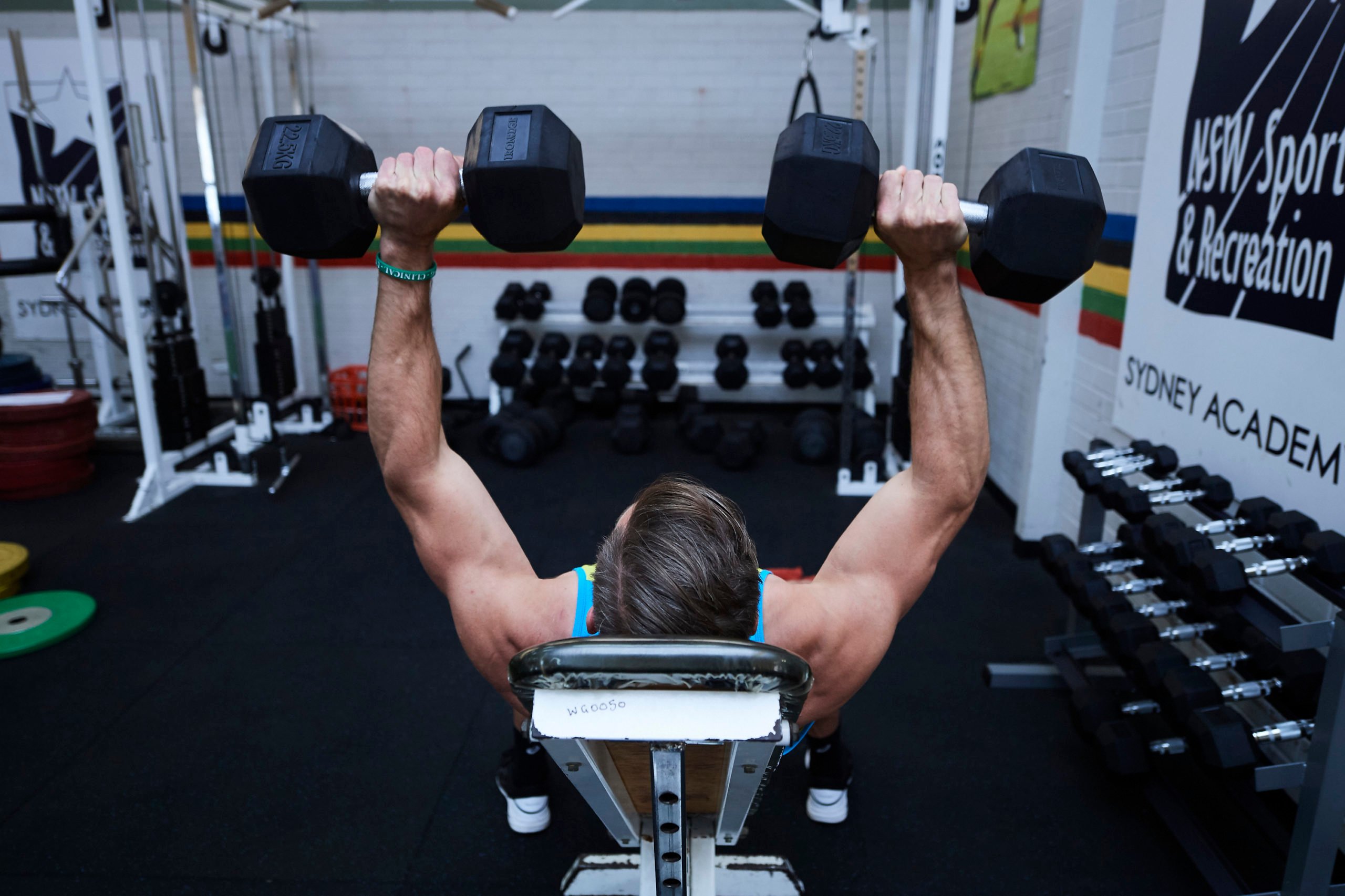Voters who have traditional views on masculine and feminine identity were much more likely to have voted for President Donald Trump in the 2020 election, according to a recent poll.
A Survey Center on American Life poll released Wednesday found that self-reported masculine identity strongly predicted support for Trump. Men who identified as most masculine had a 55% probability of supporting Trump while men who identified as less masculine or not masculine at all only had a 35% probability. The poll was conducted among 1,772 registered voters.
American Enterprise Institute researchers Karlyn Bowman and Daniel Cox asked voters to rate themselves on a seven-point scale ranging from “completely masculine” to “completely feminine.” Most respondents viewed themselves traditionally, with 56% of men identifying as “completely masculine” and 55% of women identifying as “completely feminine.”

A man works out in the gym during a training session (Brett Hemmings/Getty Images)
Among men, a majority of respondents across racial lines rated themselves “completely masculine.” But while only 54% of white men self-assigned that rating, 71% of black men and 70% of Hispanic men said they identify as “completely masculine.”
Voter preferences also lined up with the survey’s initial probabilities. 60% of “completely masculine” men supported Trump in the 2020 election while 39% of men in that category voted for President-elect Joe Biden. But Biden fared much better among less masculine men, who backed him 58% to 40%.
50% of “completely feminine” women supported Trump in the 2020 election while 49% of women in that category voted for Biden. But the president-elect fared much better among less feminine women, who backed him 60% to 37%.
There is no universal definition of masculine and feminine identity. But typically masculine traits include assertiveness and ambition while typically feminine traits include sensitivity and nurturance, according to psychologist R. Murray Thomas.
Masculinity in particular has been heavily criticized in recent years. The American Psychological Association, for example, issued a guideline in 2019 stating that “traditional masculinity is psychologically harmful.” (RELATED: Cultural Marxism Is Infecting The American Psychological Association)
Progressive institutions and academics have also started using the term “toxic masculinity” to refer to traditional viewpoints. Some colleges and universities teach courses on how “masculinity is problematic” and masculine expression has even been blamed for mass shootings.
The poll was part of the November 2020 American Perspectives Survey, which surveyed 2,016 American adults via interviews between Nov. 13-21. The poll had a margin of error of +/- 2.8 percentage points.


